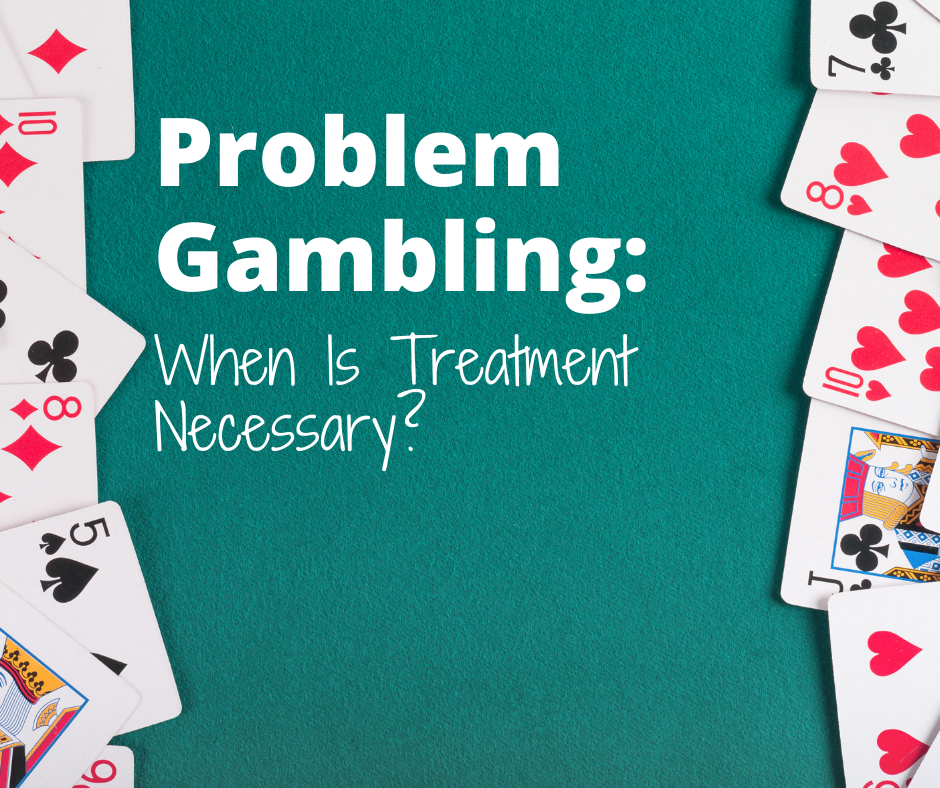
Problem Gambling: When Is Treatment Necessary?
Problem Gambling
There is a fine line between gambling just a few times and being overwhelmed with the need to gamble. Gambling has become more acceptable and accessible in our modern society, especially with access to apps on phones. Gambling just like alcohol and other drugs, play upon the brain’s reward system. Problem gambling doesn’t discriminate. It affects any ethnic group no matter how much a person makes or where they live. Similarly to other addictions, gambling can cause legal problems, difficulty in relationships or augment mental health conditions. It is important to get help when you see the following signs of problem gambling in yourself or in loved ones:
Hiding gambling
This could be for a number of reasons ranging from the desire to surprise someone with a big win or because others will misunderstand and judge. This is a telltale sign that someone’s gambling habit is becoming a problem.
Compulsive gambling
Not being able to control the impulse to gamble is one of the biggest indicators that there is a problem. The person gambling cannot stop after they have started and fall into a chain of gambling by chasing losses or to regain money that has been lost.
Gambling even when you cannot afford to
This is when people affected by Problem Gambling get into trouble. They will go through any means in order to continue and will resort to stealing, borrowing or selling possessions so that they can continue gambling.
Others are expressing concern
When family and friends start to express concern over an individual’s gambling habits, it is a significant sign. They generally know that person best. Once family and friends notice changes in behavior, they can help the individual find a path for treatment.
Gambling is not easy to overcome. Many with problem gambling also have substance use and/or mental health disorders like depression, anxiety or bipolar disorder. Everything needs to be addressed to begin the road to recovery and with help and lifestyle changes, it is possible.
If you or someone you know is working through a mental health disorder like problem gambling, please contact us. Visit Lifelineconnections.org, our Services & Locations page or call (360) 397-8246. We offer mental health outpatient programs customized for your needs. Some include individual and group therapy, peer support and opportunities to learn a variety of wellness skills.
Our caring counselors, clinicians and psychiatric professionals will be with you every step of the way. Learn more about our mental health programs.
